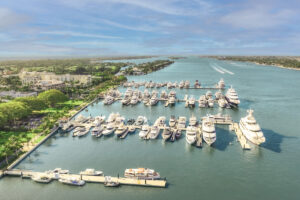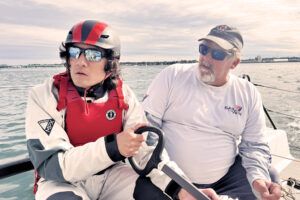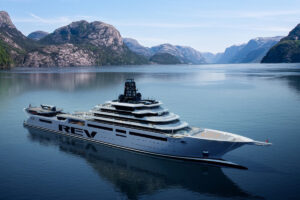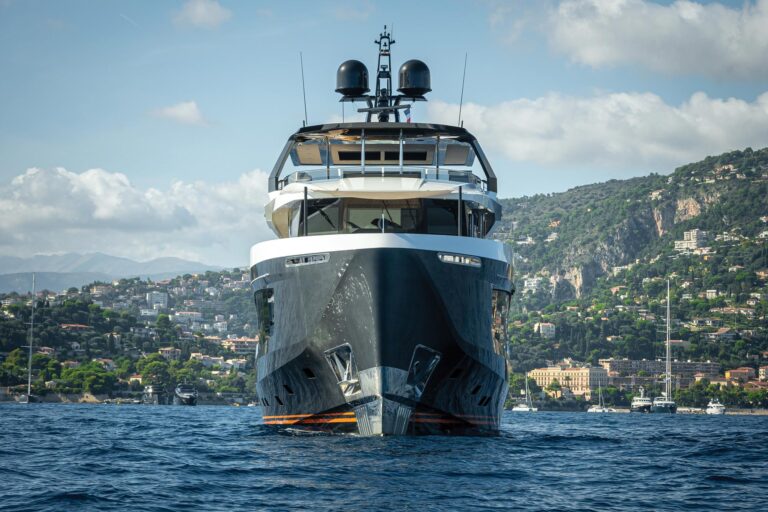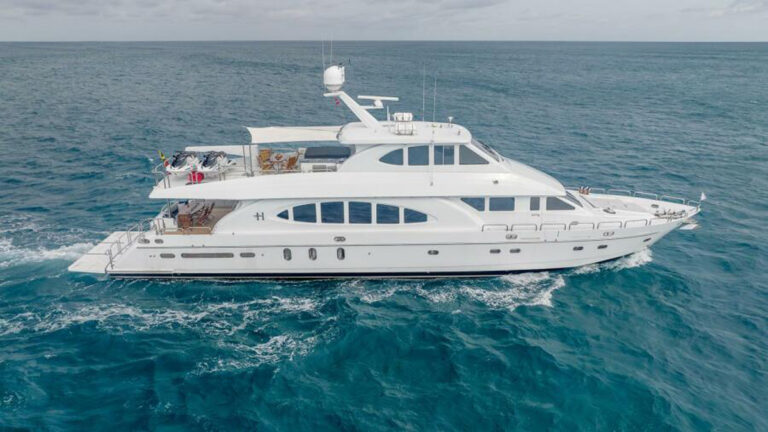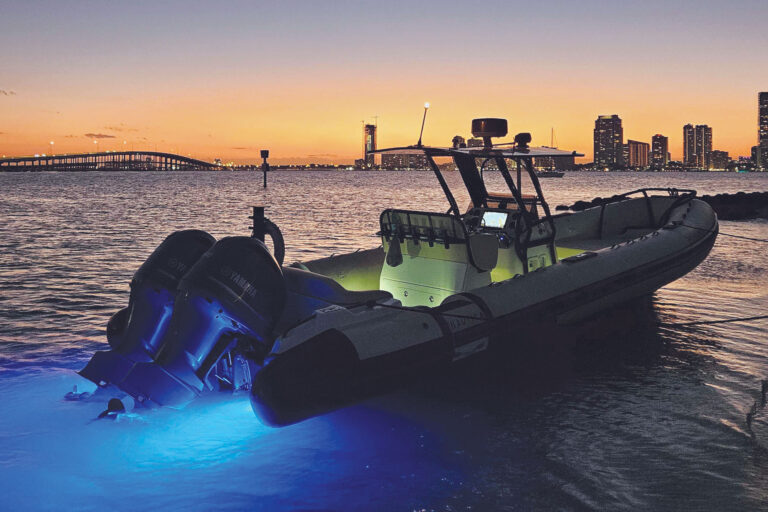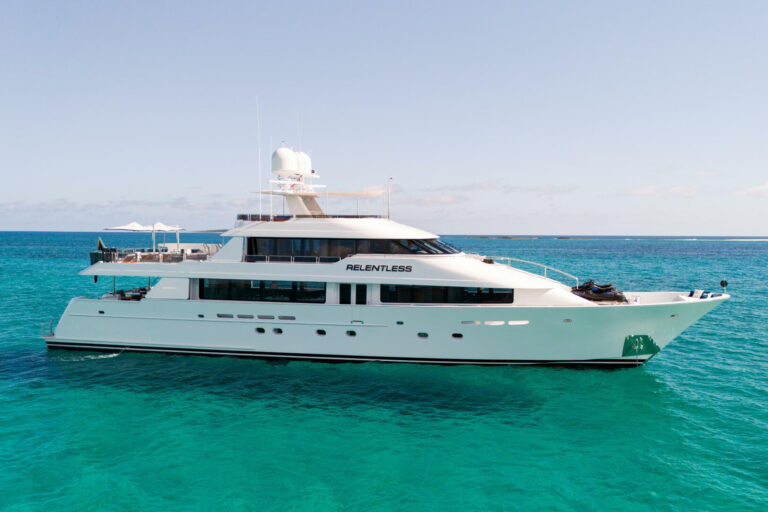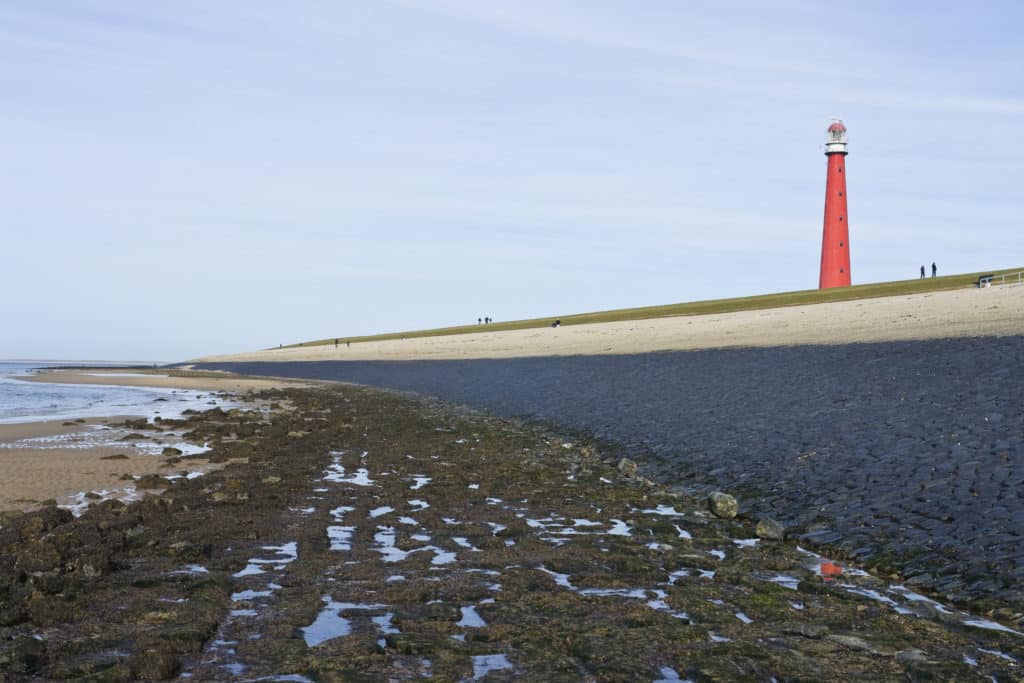
Den Helder, Netherlands: Surprise
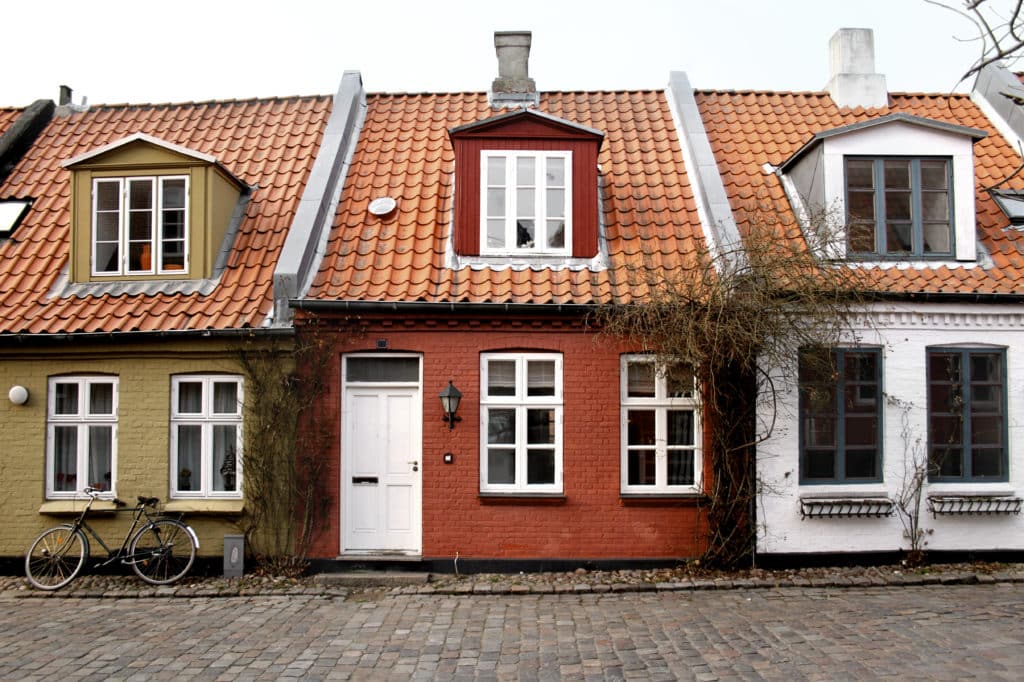
Aarhus, Denmark: Emergency
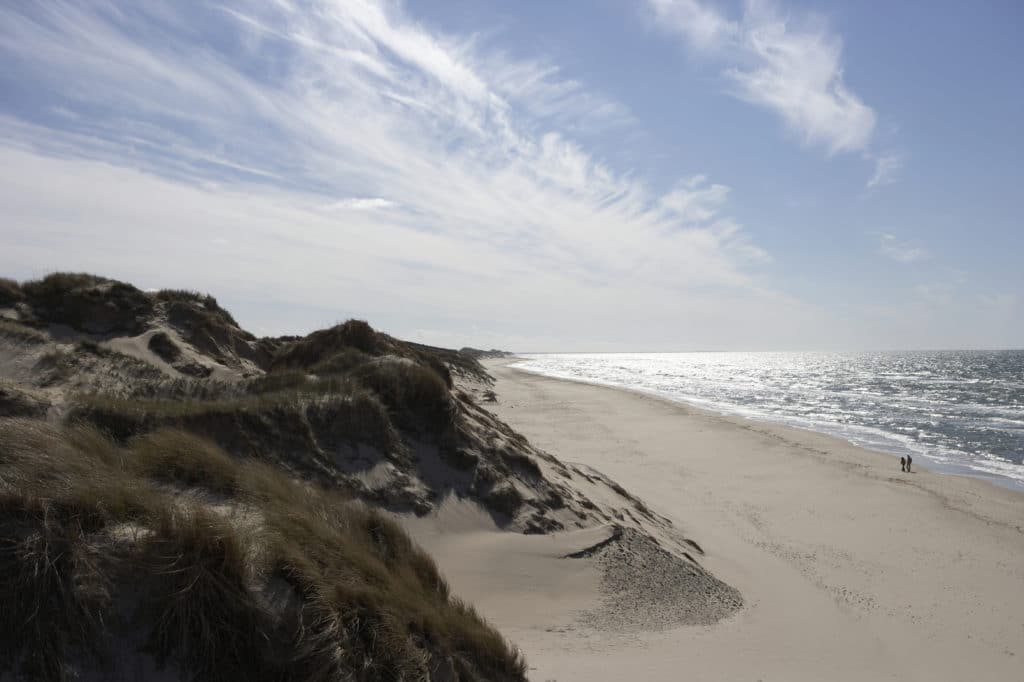
Skagen, Denmark: Total awe
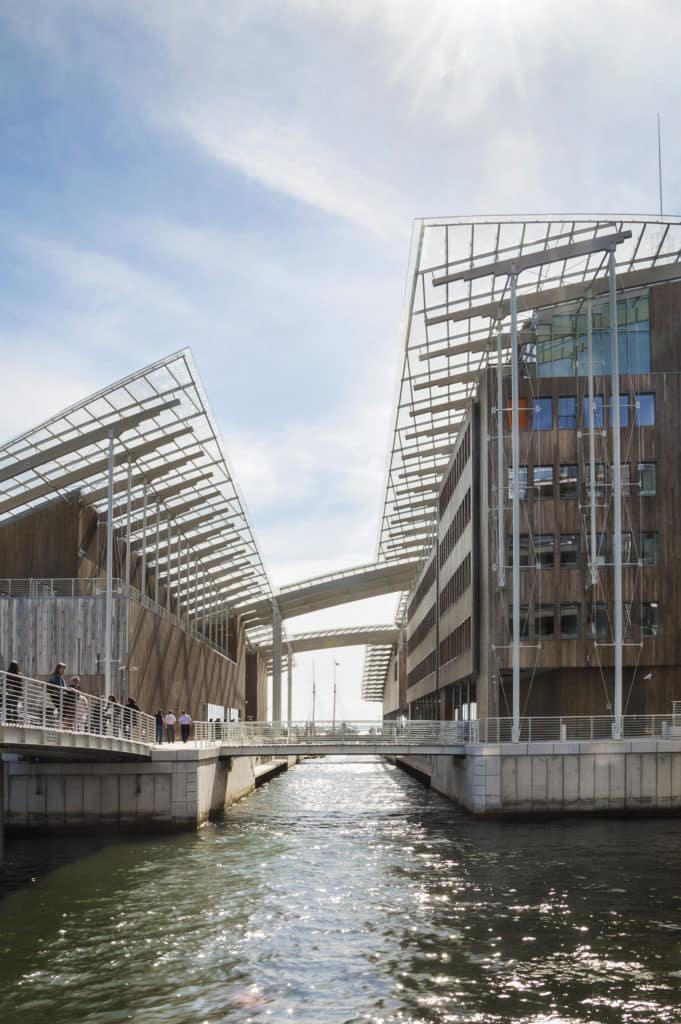
Oslo, Norway: Land Cruise
What the heck are we doing? That’s the question people ask when they’re about to bungee jump or adopt triplets. It also crept into my mind as Wendy and I idled out of the harbor at Burnham-on-Crouch along England’s east coast. Our destination: Oslo, Norway, over the North Sea and a little out of our comfort zone. A trip of about 650 nautical miles, one way, but more than three times that distance when factoring our scenic return cruise back. Perhaps a casual distance for some adventurers, but for us it would be our longest trip ever on Amusant (French for amusement, which honestly didn’t quite seem fitting at this point).
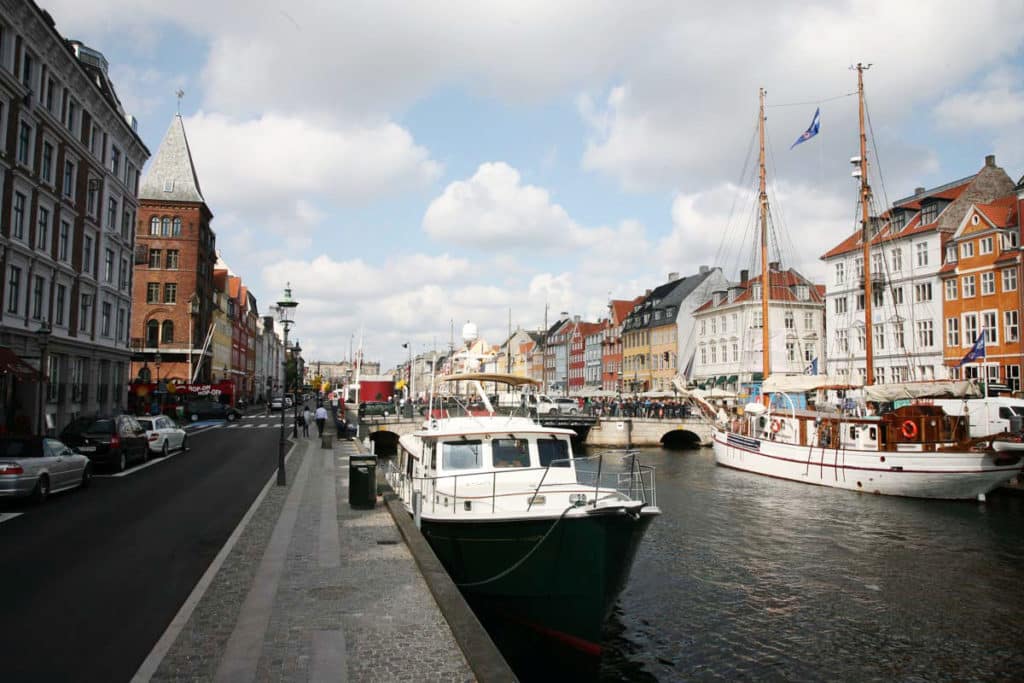
Understand, we were still relatively new to open-water cruising. We bought our 52-foot Krogen Express after having only a few years’ experience in a 20-foot runabout with navigation lights that only worked occasionally. Yet that little boat inspired us to talk about the idea of retiring, buying a bigger boat and cruising around Europe for 10 years.
One hurdle was Europe itself. It was a new continent for us, with different languages and different boating protocols. (During a shakedown cruise around the north coast of France, we were scolded by a lock attendant, which was doubly embarrassing because I couldn’t understand a word he said, only that he wasn’t happy.) As we headed away from the U.K., the questions kept coming.
Did we bring enough milk? Would we be able to find more Ben & Jerry’s? Is the North Sea friendlier than a French lock attendant?
The answer to that last question came immediately. A few miles out we had to change our plans.
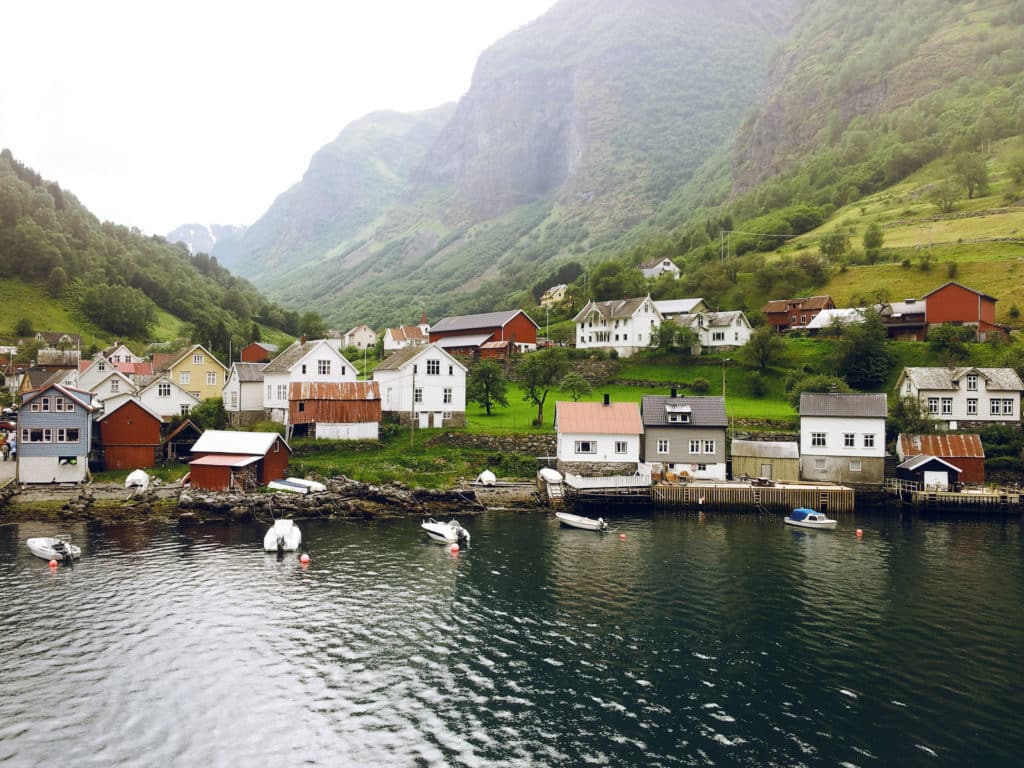
“These waves are beating us up,” I said into the empty salt air around us. Wendy and I had both seen the marine forecast that morning, and 5-foot seas were not in it.
“We have to divert,” I said.
Our original plan was to go around the Frisian Islands and make Cuxhaven, Germany. But the weather persuaded us to cross the narrow southern end of the sea and port in Den Helder, Netherlands.
It was an early lesson about adapting on the fly. And what happened next was nothing short of amazing.

it never would have happened had the satellites not been looking down upon us. At the dock in Den Helder, ready to take our lines, were two Dutch friends, Hans and Thea. They’re also Krogen Express owners and had been following our progress and our game change in live time on marinetraffic.com. We had instant dinner companions far from home. And we had help.
During dinner Hans could sense my misgivings about conditions between here and Cuxhaven.
“We’ll take the canals,” Hans said.
He said “we,” as in he’d come with me. We’d leave when the canals opened in the morning. (Wendy and Thea would take a car and meet us in Cuxhaven.)
I found out it’s a long slog through the locks and canals in the Netherlands, and that was before we were caught by double red lights in the middle of nowhere. The long slog got longer.
After finally reuniting with Wendy and saying goodbye to Hans and Thea, we marched onward, up the 61-mile Kiel Canal, along the fringe of the Baltic Sea and, two nights later, into Flensburg, Germany. We noticed later that when we mentioned Flensburg anywhere in Germany, people would smile a guilty smile. Turns out, this town on Germany’s northern border is home to the computer database for all driving violations in the country, and every German knows it — and is probably in it.
Part of the fun of cruising through Europe is the crossing of borders. It’s like coming to a new state while driving through North America, except here you enter new countries and different cultures. So, when we crossed into Denmark and came to its second-largest city of Aarhus, it was immediately clear that we weren’t in Germany, or anywhere near Rhode Island, anymore.
we found marselisborg marina in Aarhus, no problem; but the way Danes view boats here presented a big problem for us. Maneuvering in the marina almost necessitated a helicopter and boat sling. The dead-end fairways are tight. They’re built for 32- to 40-foot sailboats, and even those owners have to push off pilings to turn around.
I wish maneuvering had been our worst issue.
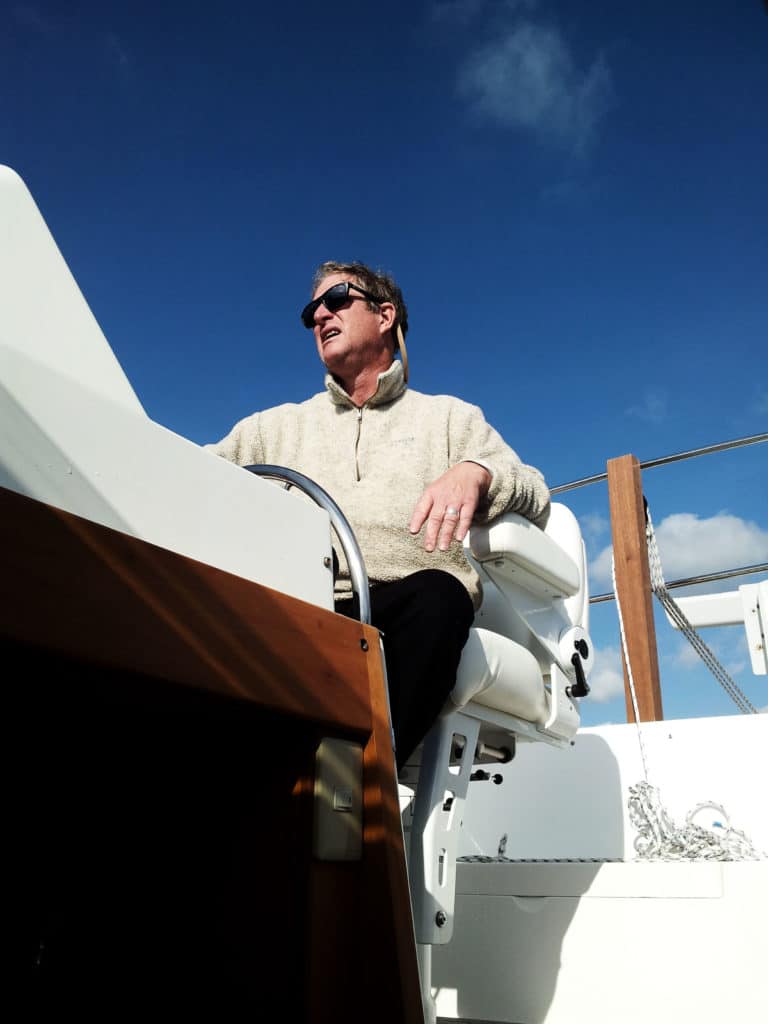
At the dock I flipped the breaker for our macerator pump to empty the black-water tank. Nothing. Our 100-gallon tank was full. The marina pump-out wasn’t available. The macerator wasn’t working. Suddenly, no one wanted to speak English.
Down the dock I saw a man with the name “Kim” on his shirt. A repairman. He spoke perfect English, even when the subject was our black-water problem. A short time later we had a new high-speed Jabsco and a fresh … mood for our next leg to Skagen.
Who would have guessed that one of the most beautiful beaches we’ve ever seen would be found at a latitude farther north than Nova Scotia? Here, at the tip of the Jutland Peninsula, the Baltic Sea and North Sea push sand into the shape of a humongous arrowhead. It must be a welcoming landmark, because in town we mingled with Swedes and Norwegians who’d traveled for miles to take advantage of low prices on fish, wine and salami. Unfortunately, we found no deals on ice cream.
Worse, we started to pay closer attention to time. So instead of cruising the west coast of Norway and visiting its charming, once-in-a-lifetime villages, we hustled Amusant up a fjord to the castles and waterfalls of Oslo, our northernmost point. It would all be downhill from there.
The Bohuslän coast of Sweden is unlike anything I’ve seen, and not necessarily in a good way. Imagine a handful of pebbles and a handful of golf balls in a pie tin. Only the silver part at the bottom of the tin is safe. That’s what navigating this water along Bohuslän is like — a quagmire of hull-crunching obstacles. Needless to say, the autopilot was off. My eyeballs were on.
When we finally reached obstacle-free water and picked up the pace, we decided to make up time by running right by more of those interesting coastal villages on the route so we could reach Copenhagen — a decision that, in hindsight, was a mistake. We took a break in Copenhagen. In fact, we returned to Newport for two months. And during the respite I thought of all the things we might have done differently. Visiting the smaller towns. Bringing more ice cream. But mostly I missed being on Amusant.
She was our home.
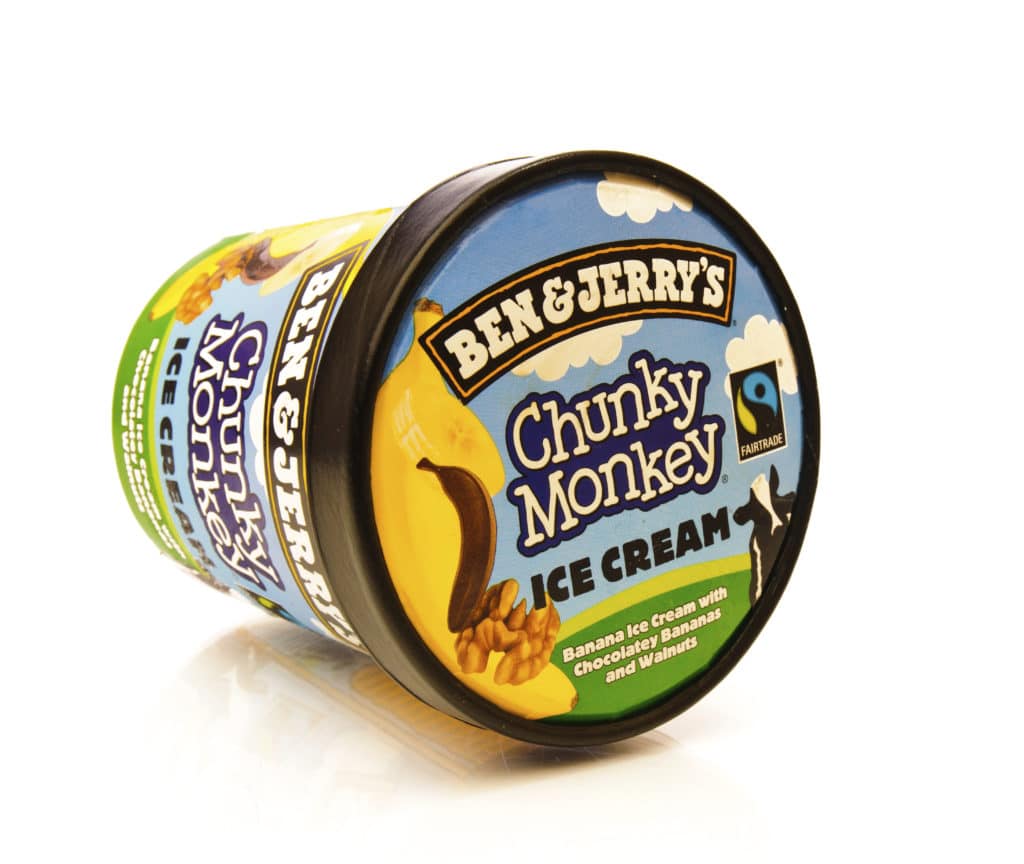
When we returned to copenhagen we moved the boat to another side of the city, Nyhavn, so we could be in the heart of the action — and enjoy it for a while. Here the streets are lined with cafes and, hallelujah, gourmet stores for provisioning. Full of culture and food stocks, we left Copenhagen one morning at 4. I’m not quite sure what happened. Maybe I was too relaxed from the good times in Nyhavn, or maybe I was back in “rush” mode. I typically check our route on the chart plotter and take a look at Google Earth. This time I didn’t. If I had, we wouldn’t have gone aground at 16 knots.
A rescue boat pulled us out of that mess, one of two big ones that occurred on our way to London. The other came after a long, tense trip across an angry North Sea, on the small island of Helgoland. Exhausted, I started filling Amusant with diesel. After about three minutes I realized what I was doing — delivering fuel into one of the water tanks.
It was like a hammer over my head. The attendant assured me no one on the island could deal with my mess. The trip was over.
As a last resort, I shut off the one water tank loaded with 60 gallons of diesel (there are two 150-gallon water tanks) and hoped Wendy hadn’t used any water in the interim. Then, I turned on the faucet. Clean water. We could still do this.
The rest of the way was disaster-free, leaving us to discover cultural tidbits like the legendary nature of Lubeck, Germany’s city gates, and the fact that most people in Amsterdam don’t pull their blinds at night. We learned it’s OK to slow down and glance, but not to stop and stare. That’s the opposite of the lesson we learned from cruising more than 2,000 nautical miles: It’s better to take the time to stop and stare at every opportunity, because a passing glance will only make you wish you’d slowed down for more.

